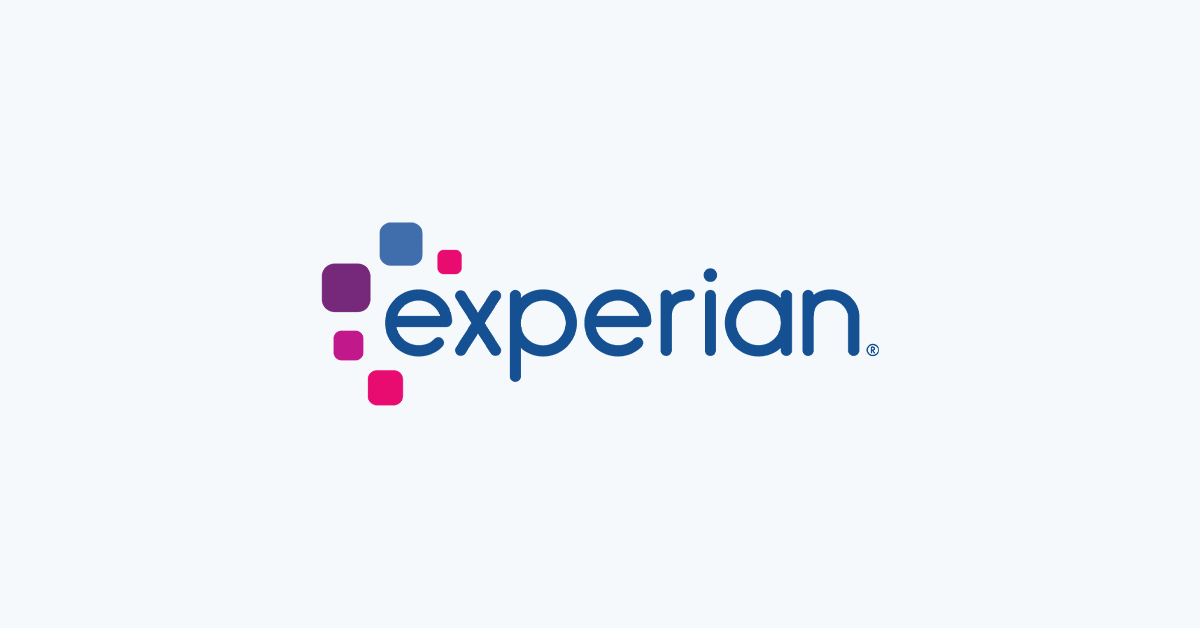All posts by Rathnathilaga Melapavoor

As the AI-enabled speed of data analytics and model development continues to accelerate across financial services, financial institutions face a growing challenge: keeping regulatory documentation aligned with rapid model innovation. Experian Assistant for Model Risk Management was built to address this challenge, and we’re proud it has been named a 2026 BIG Innovation Award winner in the Innovative Products category. The BIG Innovation Awards recognize organizations that deliver exceptional innovation and measurable value to customers and stakeholders. This recognition underscores the impact our AI-powered solution is having in helping financial institutions modernize model risk management in today’s AI-driven environment. Accelerating model validation and reducing regulatory risk Fully integrated into the Experian Ascend Platform™ and powered by ValidMind technology, Experian Assistant for Model Risk Management helps accelerate model validation, improve auditability and reduce regulatory risk. By offering standardized templates, centralized documentation and streamlined workflow approvals, the solution supports regulatory alignment while enabling faster, more consistent model development. As AI-driven models evolve at unprecedented speed, regulatory expectations continue to require thorough, explainable and auditable documentation. Experian Assistant for Model Risk Management addresses this labor- and resource-intensive requirement through end-to-end model documentation automation, helping institutions maintain accountability without slowing innovation. Addressing a growing industry challenge According to a 2025 Experian study of more than 500 global financial institutions, 67% struggle to meet regulatory requirements, 79% report more frequent supervisory communications, and 60% still rely entirely on manual compliance processes. More than 70% of larger institutions say model documentation compliance involves over 50 people. Experian Assistant for Model Risk Management helps solve this challenge by modernizing model documentation and governance practices across the credit and risk lifecycle. The 2026 BIG Innovation Award reinforces Experian’s role as a trusted partner, helping financial institutions confidently adopt AI while improving transparency, auditability and regulatory alignment. Learn more about Experian Assistant for Model Risk Management here.

The last several months stand out as one of the most dynamic periods in my career. To say it’s been an exciting time would be an understatement. For more than 20 years, the mortgage industry has relied on a single way to measure creditworthiness. With the Federal Housing Finance Agency’s decision to approve VantageScore 4.0 for use in mortgage decisions, that long-standing approach is evolving. At Experian, we’ve advocated for score choice in mortgage from the very beginning. We believe in modern scores because they allow more of Experian’s rich, differentiated data to be used in lending decisions. Because this data provides a more complete picture of a consumer’s financial health, it creates new opportunities to expand access to homeownership. At the same time, significant change naturally brings questions and debate. New models. New data sources. New decisions to make. New ways of doing things. Across the industry, there’s been a lot of discussion about what these changes mean in practice, how they impact lenders and consumers, and how the industry moves forward from here. I recently had the opportunity to talk through many of these topics with Robbie Chrisman on the Chrisman Commentary Daily Mortgage News Podcast. Our conversation focused on bringing clarity to some of the most common questions I’m hearing today, while also looking ahead to the opportunity in front of us: modernizing mortgage decisions in a way that reflects how consumers actually live and manage money to help more consumers realize their dreams of homeownership. We discuss the fundamentals, including the difference between credit reports and scores (and why that distinction matters), how expanded data, including things like rental data, cash flow insights and buy now, pay later information, can help lenders make more informed decisions and how we can help turn today’s renters into tomorrow’s homeowners. We separate fact from fiction on credit report pricing and we take a forward look at where we can, collectively as an industry, go from here. The good news is: Consumers haven’t stopped believing in homeownership. Our systems just need to continue evolving to reflect the way people live and manage money today. With better data and more modern tools, we are moving in the right direction. To hear more, listen to my full conversation with Robbie Chrisman on the Chrisman Commentary Daily Mortgage News Podcast.

At Experian, our mission is to bring financial power to all. That means breaking down traditional boundaries, creating pathways for those historically left out of the financial system, and working alongside organizations that share our commitment to inclusion. Credit Builders Alliance (CBA) is one of those partners. For years, CBA has connected community-based nonprofits with the major credit reporting agencies, helping credit-challenged consumers to build or rebuild credit – often for the first time. Our latest analysis done in partnership with CBA shows just how transformative this work can be. From unscored consumers reaching prime tiers to deep-subprime consumers seeing meaningful improvements, the data underscores a truth CBA has championed from the beginning: when people are given the opportunity to build credit, they use it to move forward. I recently had the opportunity to sit down with Dara Duguay, CEO of Credit Builders Alliance, to discuss these findings, the work her organization leads, and what’s needed to continue expanding access to fair, affordable credit for underserved communities. Q1: For those who may be unfamiliar, what is Credit Builders Alliance? Who do you serve and what role do you play in the financial ecosystem? Dara:Credit Builders Alliance is a national nonprofit network made up of community-based organizations, nonprofit lenders, and financial capability providers. Our mission is to help low- and moderate-income individuals and families build credit as an asset and gain access to the financial mainstream. We help nonprofits report loan repayment data to credit bureaus like Experian and we support organizations in strengthening their credit-building programs with training, tools, and technical assistance. Many of the consumers our member organizations serve start out with limited or no access to traditional financial products. Our work helps create pathways for them to demonstrate trustworthiness, build credit, and eventually qualify for mainstream financial opportunities. Q2: Experian recently released an analysis highlighting the impact of CBA tradelines on consumer creditworthiness. What stood out to you in the findings? Dara:The data was incredibly affirming. Seeing that 70% of previously unscored consumers with a CBA tradeline reached prime or near-prime within a year highlights just how powerful inclusive credit reporting can be. It shows that when people with limited credit histories are given the opportunity to demonstrate responsible repayment, they make enormous progress. I was also encouraged by the 48-point average increase among deep subprime consumers. These gains can dramatically change someone’s financial trajectory through lower borrowing costs, access to better financial products, and more stability for their families. More broadly, this analysis reinforces what we see daily: thoughtful credit-building programs, when paired with education and support, create real and lasting change for consumers who need it most. It shows subprime consumers can perform when given the opportunities that they are often denied. Q3: From CBA’s perspective, what approaches best help financial institutions better serve underserved consumers? Dara:A major opportunity is for financial institutions to embrace alternative data that reflects consumers’ real financial lives. Data plays such a vital role in lending decisions and expanding access to fair and affordable resources; we have to modernize our approach. Many people pay their rent, utilities, and telecom bills on time every month, yet historically these payments haven’t counted toward building credit. We’ve seen incredible momentum around rent reporting, and the impact is significant –especially for people with thin or nonexistent credit histories. Rent is often a person’s largest monthly expense, and when that positive payment history is reported, it can quickly establish or improve credit. This progress has become even more meaningful with the Federal Housing Finance Agency’s approval of VantageScore 4.0 for use in mortgage underwriting. Because VantageScore 4.0 incorporates rental payment data where available, these reporting efforts can now play a more direct role in expanding fair access to homeownership for consumers who have historically been left out. In addition, programs like Experian Boost show how empowering it can be when consumers have agency over the information included in their credit files. This feature allows people to get credit for utility, telecom, streaming, rent payments and many other things they are already doing responsibly. It’s a great example of meeting consumers where they are and acknowledging financial behaviors that have historically gone unrecognized. Financial institutions should continue looking for ways to bring these types of innovations to more consumers, especially those overlooked by traditional models. Q4: From your view, how do companies like Experian help advance financial inclusion? Dara:Experian plays an essential leadership role in expanding access to credit, especially through initiatives that rethink how data can work for consumers rather than against them. They’ve been a leader in modernizing the credit reporting industry. Programs like Experian Boost are great examples of that—giving consumers the option to add positive payment information and potentially improve their credit in a matter of minutes. It’s a simple concept, but it has opened doors for millions of people who previously struggled to gain traction in the system. Similarly, Experian’s commitment to supporting rent reporting has been a major step forward. The ability for tenants to build credit through their rent payments, which is one of the most consistent household expenses, helps create equity for people who might not have access to traditional credit-building products. And on a broader level, Experian’s willingness to partner with mission-driven organizations like CBA demonstrates a shared belief that credit is a gateway to opportunity. With analytical insights like our most recent study, Experian is helping validate the importance of inclusive reporting and informing the industry about the real-world benefits for underserved communities. Q5: What misconceptions do you see about credit-challenged consumers, and what should the financial industry understand? Dara:One of the biggest misconceptions is that people with limited or poor credit histories lack financial discipline. In reality, many of them pay significant bills, including rent, utilities, childcare and more, on time every month but simply don’t receive credit for it in the traditional scoring system. Another misconception is that credit building loans or other community-based nonprofit lender products don’t make enough of a difference to report. But as this analysis shows, they absolutely do. Even a single tradeline can serve as a bridge toward greater financial stability. The industry should recognize that credit-building is a foundational tool for economic mobility, and millions of people need better access to programs that support it. My conversation with Dara reinforces what makes Credit Builders Alliance an essential component of the financial ecosystem: their work is grounded in equity, powered by community, and focused on creating lasting pathways to economic mobility. At Experian, we are proud to stand alongside CBA as a partner in expanding inclusive credit reporting, advancing responsible use of alternative data, and ensuring consumers have more control and visibility over their financial futures. The insights from our collaborative analysis make one thing clear: when people are given the chance to demonstrate their financial capabilities, they do. And together, we can make that chance available to millions more. If you’re interested in learning more about Credit Builders Alliance, their mission, and the powerful work they’re leading to expand financial opportunity, I encourage you to visit creditbuildersalliance.org. Whether you represent a nonprofit, a financial institution, or simply want to understand how credit-building strengthens communities, CBA offers resources, tools, and programs that make a meaningful difference. Together, we can continue to open doors, unlock potential, and bring financial power to all.

Artificial intelligence is quickly becoming a cornerstone of modern lending, and new research from Experian shows just how central it has become to financial institutions’ strategies. According to the latest Experian Perceptions of AI Report, adoption is accelerating as lenders look to AI to improve efficiency, sharpen decisioning and manage risk in an increasingly complex environment. The study surveyed more than 200 senior decision makers across leading financial institutions. An overwhelming majority of respondents view AI as either critical or a high priority over the next two years. Even more telling, nearly nine in ten believe AI will play a vital role across the entire lending lifecycle, from application and underwriting to fraud prevention and portfolio management. What is driving this momentum is clear. Respondents expect AI investments to deliver meaningful gains in operational efficiency, stronger credit accuracy, and more proactive risk mitigation. These benefits are no longer theoretical. Many institutions are already seeing measurable improvements as AI becomes embedded in everyday decisioning processes. At the same time, adoption is not without its challenges. Regulatory uncertainty remains a top concern, with many leaders carefully navigating evolving compliance expectations. Data readiness is another critical hurdle. Nearly two-thirds of respondents identified having AI-ready data as one of their biggest obstacles. In fact, data quality emerged as the single most important factor influencing trust when selecting an AI partner. Experian is uniquely positioned. With an industry leading data ecosystem and advanced analytics capabilities, Experian helps lenders move faster from model development to real-world impact. Recent AI powered enhancements to the Experian Ascend Platform empower more intelligent, proactive decisioning that anticipates customer needs, detects risk in real time, and uncovers new growth opportunities. To learn more click here: Experian Perceptions of AI Report.

Every year, I look forward to sharing Experian’s Future of Fraud Forecast because it’s more than just a report — it serves as a trusted guide for the industry and a way to cut through the noise to spotlight the trends that will matter most over the next year. Fraud isn’t just a business problem. It’s also a human problem that impacts real people. Every time we stop fraudsters, we protect people’s identities, their financial security, and their trust in the digital world. That’s the mission that drives me. As we head into 2026, the fraud landscape is evolving in ways we couldn’t have predicted 20 years ago. We’re entering an era where AI is making fraud more sophisticated, autonomous and scalable than it was even just 12 months ago. For example, agentic AI can help book a vacation with just a single prompt. Meanwhile, tried and true schemes that have been around for years are still happening and are being accelerated by AI. This isn’t science fiction, it’s happening now and requires modern fraud mitigation strategies to combat. If we fail to act, businesses and consumers will face risks that are harder to detect and easier to exploit, leaving millions vulnerable. This year, our forecast highlights five fraud threats including: Machine-to-machine mayhem: As organizations race to leverage agentic AI, the sheer volume of players entering the space will make fraud inevitable and impossible to ignore. Fraudsters will exploit agentic AI to commit new levels of digital fraud. With machine-to-machine interactions initiating transactions without clear ownership of liability, businesses will face growing uncertainty around agent ownership, intent and risk. Experian predicts fraud will reach a tipping point that will spark major conversations and decisions around liability, regulation and the role of agentic AI in shaping responsible digital commerce. Deepfakes outsmart HR: Employment fraud is set to escalate in the remote workforce as generative AI (GenAI) tools generate hyper-tailored resumes and deepfake candidates capable of passing interviews in real time. Experian forecasts that employers will unknowingly onboard individuals on a much larger scale who aren’t who they say they are, giving bad actors access to sensitive systems. This emerging threat is expected to reshape how organizations verify identity and intent in the hiring process. Smarter homes, scarier threats: Smart homes are introducing new entry points for fraud. Devices like virtual assistants, smart locks, security systems, smart appliances and the coming use of humanoid robots will be exploited by bad actors to access personal data, monitor household activity and even take control of physical access points. Experian predicts that as the adoption of smart home devices continues to grow, so will the risk, with new forms of ransomware and opportunities for account hijacking, turning convenience into vulnerability for consumers. Website cloning will overwhelm fraud teams: Cloned websites, where fraudsters replicate legitimate sites to phish consumers, are becoming easier to create through AI tools and harder to eliminate. Notably, even after takedown requests, spoofed domains continue to resurface. As companies are forced to play whack-a-mole to address these threats, they risk being distracted from broader fraud strategies, allowing other threats to escalate. Experian forecasts that cloned sites will continue to cause significant losses for online retailers and businesses by tricking consumers into sharing their credentials, fueling credit card fraud, accelerating identity theft and synthetic identities, and facilitating other forms of financial fraud. Bots will break hearts and bank accounts: Emotionally intelligent bots powered by GenAI will accelerate the scale of their complex scams, like romance fraud and relative-in-need scams, without a human behind the keyboard. These bots will respond convincingly, build trust over time, and manipulate victims with precision and emotion. As they become harder to distinguish from real people and good bots, Experian predicts fraud will scale faster and become more financially and psychologically damaging. Fraud is becoming more adaptive, autonomous, and intelligent. But the good news is we can fight back. At Experian, we’re committed to helping businesses outpace these threats by combining differentiated data, advanced analytics, and AI-powered technology. Together, we can protect consumers without sacrificing experience and make a real difference in people’s lives. Learn more about Experian’s fraud prevention solutions here.

Chief Innovation Officer, Kathleen Peters recently spoke on an “AI at Velocity: Securing the Agentic Enterprise” panel at Fortune Brainstorm AI, exploring strategies for designing, deploying, and securing agents to ensure observability and control from day one. The panel covered a core theme that underscores how to accelerate enterprise adoption of AI agents: promoting trust. The discussion explored different dimensions of trust in AI agents, all of which speak to strengths of Experian. First, Kathleen cited the critical need to know the intent behind an agent, verifying whether it is acting on behalf of a human, another agent, or a bad actor. Also, understanding the permissions that the agent has been given is very important. Here, Experian’s identify protection and fraud prevention solutions play a key role. Second, trust is built through policy guardrails that enterprises put in place that provide a framework for its network operations across the governance, orchestration, and execution layers. Ensuring proper security of agentic processes becomes the top priority for businesses and consumers who engage with the enterprise. This security is especially important in highly regulated industries, such as financial services and healthcare. These policy guardrails will serve two purposes: differentiate a brand’s customer experience and eventually become the foundation for industry-wide regulatory standards. These guardrails need to be enforced by a policy engine that should have the capability to remediate or reverse the action of an AI agent if its actions violate any policy. Experian Ascend Platform’s feature set includes this kind of governance and orchestration of agentic-AI processes to ensure the highest standards of data privacy and protection, and keep our customers safe and secure. The panel closed with a look-ahead to 2026 and beyond. Kathleen emphasized that agents will quickly move beyond automation of human tasks into new areas where they will “talk” to each other and even spawn new agents. In this fast-evolving landscape, building trust through enterprise policy and proper orchestration and governance of AI agents will separate the market winners from the rest. Watch the virtual event here.

At Experian, we believe that financial education and opportunities should be accessible to everyone, and sometimes the best way to share that message is through something that unites us all, like sports. As part of our latest installment of the “BFF” - Big Financial Friend – ad campaign, we celebrate smarter money moves with two professional athletes and real-life best buddies San Francisco linebacker Fred Warner and Los Angeles wide receiver Puka Nacua. These pro football stars bring authenticity and energy to the campaign by showing how Experian can be the ultimate teammate, helping consumers save money and make better financial decisions. In the new commercials developed by Experian’s in-house creative agency The Cooler, Fred and Puka talk life, football, and finances. Their chemistry illustrates what Experian stands for: being by consumer’s side like a trusted friend who’s always looking out for them. Sports as a bridge to financial empowerment Sports have a unique ability to bring people together across backgrounds, circumstances, and financial situations. Whether fans are watching from home or in the stadium, sports create shared experiences that transcend differences. That’s why we continue to leverage this powerful platform to reach as many people as possible with our message of financial empowerment and to share our products and services. We’re thrilled to work with athletes like Fred and Puka, whose energy and authenticity help us connect with millions of fans during some of the biggest sporting events of the year. These moments aren’t just games, they’re cultural touchpoints, and we’re harnessing them to reach more people with knowledge and tools that make a real difference. This campaign is a great example of how we’re combining creativity, culture, and technology to make financial wellness accessible to everyone. Watch the new ad here and keep an eye out for it during the College Football and pro football playoff season.

I recently had the opportunity to attend Money20/20 in Las Vegas, where one theme dominated nearly every conversation: artificial intelligence is reshaping financial services. But amid all the excitement around algorithms and technology, the data that powers it all often gets overlooked. AI is only as effective and trustworthy as the data behind it. For financial institutions, high-quality, differentiated data determines how confidently they can assess creditworthiness, detect anomalies, and manage risk. Ultimately, it’s data that allows lenders to innovate responsibly, personalize experiences, and deliver better outcomes for consumers. At Experian, we see measurable impact when institutions strengthen their data foundations. Our clients are making faster lending decisions, reducing default rates, and expanding access to credit through responsible, data-driven innovation. Turning Better Data Into Better Decisions Experian’s industry-leading core credit data, alternative credit data, cash flow insights, and more gives lenders a more holistic view of financial health. These differentiated data assets, combined with our history or continuous innovation, enable AI systems that are more transparent, explainable, and fair. On example of this is our Experian Assistant for Model Risk Management, a new AI-powered capability that automates the most complex and time-intensive areas of compliance. This solution continuously analyzes model documentation, detects model drift, and recommends corrective actions in real time. Ultimately, this is transforming compliance from a barrier to a driver of ROI and innovation that benefits consumers and businesses. Bridging the Gap Between Innovation and Compliance While at Money20/20, I had the opportunity to share more about how we are leveraging differentiated data and technology to help make room for innovation during an interview with Fintech Futures. Reporter Tyler Pathe and I discussed the fact that many institutions still rely on manual processes for compliance — with some involving up to 50 people just to document and validate models. That level of inefficiency slows progress and increases operational risk. Through automation and AI, and differentiated data at our foundation, we are changing this narrative and helping our clients move faster and innovate with confidence. You can tune into my full interview with Fintech Futures below.

As we approach 2026, artificial intelligence is no longer just a tool for innovation—it’s a weapon in the hands of cybercriminals. Our 13th Annual Data Breach Industry Forecast, released today, highlights how AI is poised to redefine the cybersecurity landscape, introducing a new era of highly personalized, persistent, and technologically advanced attacks. We outline six key predictions, with AI emerging as the central theme. From synthetic identities and autonomous AI agents to shape-shifting malware and even vulnerabilities in brain-computer interfaces, the forecast paints a picture of a threat environment that’s evolving faster than many organizations can keep up with. The stakes are high. In the first half of 2025 alone, more than 8,000 global data breaches exposed approximately 345 million records [1]. Experian’s clients in the United States, United Kingdom, and Canada were among the hardest hit. Consumers Are Feeling the Impact To check the pulse of how consumers are feeling about the impact of AI on security, we recently conducted a national survey in the U.S. and UK. The findings reveal growing anxiety around AI-driven threats. In both the U.S. and U.K., more than 80% of respondents expressed concern about AI being used to create fake identities indistinguishable from real people. Millennials appear especially vulnerable, with 1 in 4 reporting identity theft in the past year and nearly a quarter falling victim to phishing attacks. The findings also show a lack of confidence in corporate defenses: 69% of U.S. adults don’t believe their bank or retailer is prepared for AI-driven attacks. 76% believe cybercrime will continue to escalate and become impossible to slow down due to AI. 35% worry about being held personally liable for cybersecurity mistakes at work. Preparing for the AI-Driven Future While the threats are daunting, organizations can turn the tide by adopting AI defensively. Proactive investments in AI-powered threat detection, employee training, and incident response planning will be critical in 2026 and beyond. Experian Data Breach Resolution has more than 20 years of experience helping companies manage a security incident and it’s no different today than it was two decades ago – the same technologies that are being used against us can also be used to protect us. AI can help detect anomalies faster, automate responses, and reduce human error. But it requires investment, training, and preparation. To review all six predictions, download the paper here. Understanding what’s coming is the first step toward building a stronger, more resilient cybersecurity strategy. [1] Data Breach Statistics 2025: Key Trends, Costs & Risks Revealed, SQ Magazine, October 6, 2025